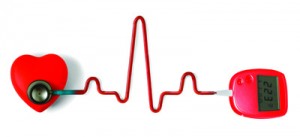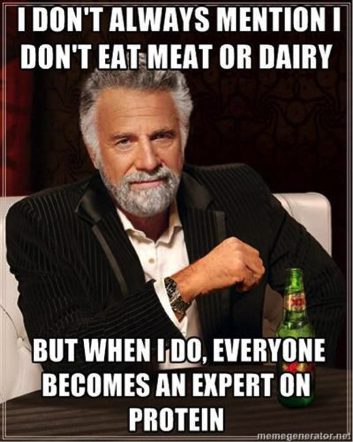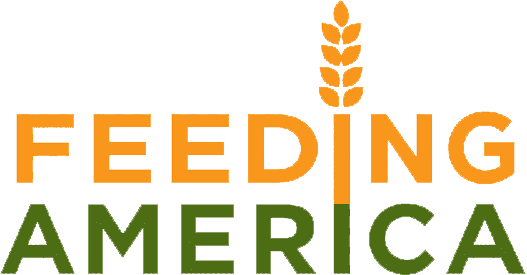The environment and its health is a hot topic right now. Similarly, OUR health is a hot topic right now. Many of us have seen the warnings…

1. If the whole world lived like we do in the United States, we would need 4.1 earths.1
2. More than one-third (34.9% or 78.6 million) of U.S. adults are obese.2
3. This generation of children may be the first in U.S. history to live sicker and die younger than their parents.3 
4. 1 in 4 Americans will die from heart disease.4
5. 29.1 million Americans, or 9.3% of the population, have diabetes.5
According to journalist and blogger Tim De Chant, the USA makes up 5% of the global population, but we use 20% of the world’s energy. We eat 15% of the world’s meat (that’s 10 BILLION Animals Every Year), and we produce 40% of the world’s garbage, which includes 16 BILLION disposable diapers every year. In addition, each American throws away 1200 pounds of organic garbage every year that can be composted. We consume an awful lot of STUFF and hardly take a minute to think about its effects.
I want to zero in on those 10 Billion animals we kill and eat every year. What are the implications for our environment and our health? Many researchers will argue that it is this animal consumption that is responsible for our obesity, our lower life expectancy, our sick hearts, our out-of-control blood sugar, and our very sick planet.
And OH BOY there are a lot of implications! Over the next several posts, we will dive into all the dangers our planet and we face if we don’t change our attitudes about and consumption of animals. Let’s start with:
Our Health
As stated, many will agree that the overconsumption of animals is directly related to the health crisis Americans find themselves in today. (Sugar plays a big role in this too.) According to renowned Food Writer, Author and New York Times Columnist Mark Bittman who follows a “Vegan Before 6pm” lifestyle:
- Americans are consuming close to 200 pounds of meat, fish, and poultry per year, an increase in 50 pounds in the last 50 years.6
- Each average animal eater takes in about 110 grams of protein every day, which is double the recommended daily allowance. About 75 grams of these come from animal foods.6
- According to the Institute of Medicine we only need approximately 10 to 15 percent of our calories to come from protein. The average woman needs about 46 grams per day and the average man, 56 grams per day.7
- Many current nutrition experts would argue that 55 grams of protein (half of the average 110 grams) a day is more than we need, and roughly 30 grams, strictly from plant sources, is perfectly adequate.6
These staggering numbers showcase how overindulgent we are with protein. High protein, low carbohydrate diets are all the rage; Paleo, Atkins, even the new Whole 30. They are encouraging us to consume an alarming amount of animal protein that is directly contributing to our epidemic rates of obesity, diabetes, and heart disease.
 Dr. Richard Oppenlander, a sustainability consultant, researcher, and author who has spent 40 years studying the effects food choices have on our planet and on us wrote about the HUGE cost animal consumption is to our health and healthcare system in his new book “Food Choice and Sustainability: Why Buying Local, Eating Less Meat, and Taking Baby Steps Won’t Work.”
Dr. Richard Oppenlander, a sustainability consultant, researcher, and author who has spent 40 years studying the effects food choices have on our planet and on us wrote about the HUGE cost animal consumption is to our health and healthcare system in his new book “Food Choice and Sustainability: Why Buying Local, Eating Less Meat, and Taking Baby Steps Won’t Work.”  Recently featured on Julianne Heaver, Plant Based Dietitian’s blog, a nationally recognized advocate and expert on plant based nutrition, she provided a quote from his new groundbreaking book: I quote:8
Recently featured on Julianne Heaver, Plant Based Dietitian’s blog, a nationally recognized advocate and expert on plant based nutrition, she provided a quote from his new groundbreaking book: I quote:8
“In the U.S. and other developed countries, eating animals is one of the most significant risk factors found in nearly all of the most common diseases. It is, therefore, heavily implicated in rising health care costs, health insurance premiums, foods prices, and even labor costs for businesses. Those who eat animals are driving up all these costs while driving down productivity.
More than $3 trillion dollars were spent on health care in 2012 ($2.83 trillion in 2009, growing at 6 percent per year) in the U.S. Of that, minimally $130 billion dollars spent were due to dietary choices related to livestock. I believe this figure is quite conservative and could be as high as $350 billion due to eating animals, because this is how some of the $3 trillion was spent:
- $300 billion—heart disease
- $200 billion—diabetes
- $190 billion—obesity
- $124 billion—cancer
- $88 billion—food-borne illness
These figures are truly staggering and are for just one single year. They also do not reflect loss of productivity. For obesity alone, it is estimated that the annual cost of the workdays missed is $30 billion, with employers losing, on average, $3,800 per year for a single obese person. These are not just figures or statistics to me; they’re patterns that tell a story about what we choose to eat as a society and what happens to us afterwards—the stark and very real consequences. Eating animal products increases risks of contracting diseases that contribute to all of these health care costs. Eating plants, on the other hand, will take you in the other direction, protecting you from developing these diseases.”
According to Dr. Oppenlander, it is estimated that eating purely plant-based foods provides the following protective benefits, as compared to individuals eating the average amount of meat:
- 50 percent less risk of coronary heart disease (CHD)
- 40 percent less risk of cancer (breast, colon, prostate, ovarian, pancreatic, lung)
- 70 percent less likelihood of adult onset diabetes
- 50 percent less likelihood of developing hypertension
Most people are unaware any foods other than animal foods have protein! Seriously! This cartoon below is actually a pretty accurate portrayal of most Americans.
This is far from true! As a plant based eater myself, I can’t tell you how many people have asked me in a panic “BUT WHERE DO YOU GET YOUR PROTEIN?” Here’s the meme I want to show them:
You CAN find plenty of protein in plants! And Veggie protein has so many more positive benefits! Here are just some of the plant-based protein superstars and the amount of protein they contain per cup: (featured on Plantbaseddietitian.com)9

For now, on this complex and complicated topic, I leave you to think about your health, what you eat, and how much you spend annually on healthcare costs. Do you think you have room for improvement? Does this post make you think twice about having your typical eggs and bacon breakfast? How about a deliciously deceiving Tofu Breakfast Scramble with a side of sweet Good Morning Quinoa Breakfast Cereal! Both are protein packed, will send you off to work/school/or wherever with the sustained energy to make a difference and advocate for a more kind and healthy food culture! YEA!!
Stay tuned in the next few months for how consuming animal foods is extremely detrimental to our planet and to the welfare of animals. And trust me, there is light at the end of the tunnel. People are doing amazing things to turn the health of our planet around. In addition, many leading experts in plant based nutrition are fervently spreading the word about the harmful effects of too much animal protein, so hopefully we as a nation can turn our health around too!
References:





